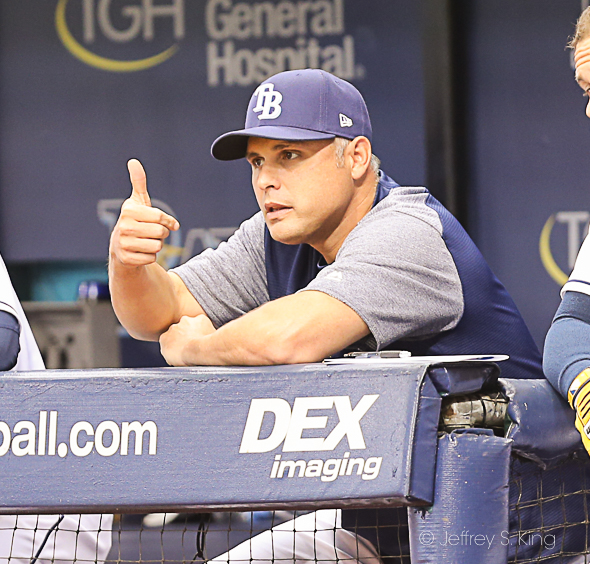
Thursday, 4 a.m.
Back when the world was young, when dinosaurs roamed the outfield, when you bought baseball cards to get that cardboard bubble gum inside, baseball was innocent.
Cheating was, too.
It was 1970, and I was fresh out of high school. I was working for a small newspaper in South Georgia at the time, and somehow, I was hoodwinked into coaching a small youth league baseball team.
And so I would fill out lineups, and I would try to make catchers out of outfielders, and I would buy snow cones. The whole time, I was mindful that every kid got two innings and one at bat, and I was busy pointing in nine directions at once. As I
Content beyond this point is for members only.
Already a member? To view the rest of this column, sign in using the handy "Sign In" button located in the upper right corner of the GarySheltonSports.com blog (it's at the far right of the navigation bar under Gary's photo)!
Not a member? It's easy to subscribe so you can view the rest of this column and all other premium content on GarySheltonSports.com.
remember, it was in the top of the first inning of the first game when a kid named Ken Moody, the son of the coach of the local junior college baseball team, turned to me as he chewed his gum.
"Coach," he said. "I got their signs."
Huh?
Now, sign-sealing was a simple deal in those days. There were no curveballs thrown, so no one was trying to figure out which pitch was coming. There was an indicator, and a steal, and a take, and a bunt. That was it.
We won the league that year possibly because the Cutler brothers -- the worst athletes in the league -- went away to summer camp and I didn't have to play them.
Now, almost a half-century later, everyone is talking about sign-stealing again. Yesterday's wink-wink, nudge-nudge, spy vs. spy sign swiping has graduated to the point where it involves cameras and widespread cheating.
Now, major league baseball would like you to believe the problem has been addressed and answered. No problem here. Three men have lost their jobs (fired by their teams after being suspended) and the Astros have been fined $5 million (the price of a backup infielder) and had two No. 1 draft choices taken away.
Is that it? Look, it's no consolation to the Rays -- whose signs were stolen by the Astros in their playoff -- that A.J. Hinch is out of work. This punishment was handed out in a fish bowl, as if there were no victims and no conspirators.
What about other teams? What about the players who took advantage? What about making sure the penalties for the cheating is worse than possibly losing. No one seems to care.
Baseball has sent mixed signals of its own in this scandal. It needs to separate the victims from the villains, and it needs to treat this seriously. It needs to fight technology with technology. It needs to suspend players and managers. It needs to establish clear rules and punishments.
Look, I get it. As soon as one team comes up with secret signals to conduct strategy, other teams are going to try to steal them. It's been that way since 1876, I read. Generally, it's thought of along the lines of corking a bat or scuffling a baseball. A misdemeanor, not a felony.
But now baseball wants us to believe there has not been widespread cheating going on. And from the sounds of serious voices, it's as bad as steroids was 20 years ago.
I remember having a long conversation with ex-Rays' catcher John Flaherty after Sammy Sosa was caught with a corked bat. I asked him about the line between major cheating -- throwing the World Series -- and gamesmanship -- corked bats, etc. Flaherty was adamant that cheating was cheating, and the "boys will be boys" mentality was all wrong.
Look, it's cheating. And if baseball wants us to think of sign-stealing that way, then it needs to keep the heat on. It needs to follow up with other suspensions. It needs to shut down the cameras (or monitor them with an MLB employee).
Look, if a pitcher has a tell -- if he grips the ball differently, if he stands on a different part of the rubber, etc. -- than that's on him.
The world isn't as innocent as it used to be. We all know that.
Another Rays' story. It was early in spring training, and the Rays' third base coach (Tom Foley) was going over the signs with his players. A young outfielder named Josh Hamilton (the one who got away) was barely paying attention as Foley talked.
Finally, Hamilton looked up at Foley.
"Hey, coach," Hamilton said. "What's the sign for a home run?"
With some signs, simple is better.
COMMENTS
Regarding the baseball cheating mess, it will be interesting to see it the Mets fire their new manager - Carlos Beltrán.
-- SCOTT MYERS
It will be. Beltran was the only player named in MLB's statement. He was an Astros' player at the time, and he shared in a World Series. The only reason he might not be punished is that he was a player at the time, and MLB execs far the players' union.
GS